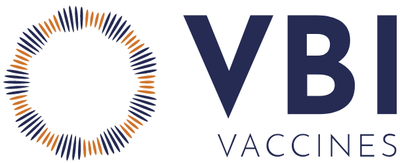

- Home
- Companies
- VBI Vaccines Inc.
- News
- VBI Vaccines Receives U.S. FDA Orphan ...
VBI Vaccines Receives U.S. FDA Orphan Drug Designation for VBI-1901 for the Treatment of Glioblastoma
- FDA Orphan Drug Designation reflects urgent need for new therapies for glioblastoma (GBM) patients
- Next steps for development of VBI-1901 :
- Q3 2022: Expected initiation of randomized, controlled clinical study in recurrent GBM patients with potential to support accelerated approval application
- Q4 2022: Expected initiation of randomized, controlled evaluation in primary GBM patients as part of INSIGhT adaptive platform trial
VBI Vaccines Inc. (Nasdaq: VBIV) (VBI), a biopharmaceutical company driven by immunology in the pursuit of powerful prevention and treatment of disease, today announced that the U.S. Food and Drug Administration (FDA) granted Orphan Drug Designation for VBI-1901, a bivalent gB/pp65 immunotherapeutic vaccine candidate for the treatment of glioblastoma (GBM). In June 2021, the FDA also granted Fast Track Designation for VBI-1901 for the treatment of recurrent GBM in patients with first tumor recurrence.
“This orphan drug designation is another significant milestone for our VBI-1901 program, and it underscores the urgency of our effort to develop meaningful new treatment options for patients with this devastating cancer,” said Jeff Baxter, President and CEO of VBI. “As recently presented at ASCO, we continue to see strong tumor response data and improvements in overall survival data compared to historical controls in the Phase 2a study of VBI-1901. With this orphan drug status, we look forward to working closely with the FDA and clinical investigators to build on that data, advancing the potential of this program to be a valuable part of the fight against GBM.”
Though classified as a rare disease, GBM is the most common primary brain cancer with approximately 14,000 new cases diagnosed in the United States each year, and a low median overall survival of 15-18 months after diagnosis of primary GBM.1 Glioblastomas are stage IV brain tumors – they are an exceptionally aggressive form of brain cancer, with high recurrence rates and a five-year survival rate around 10%.2 Standard of care in the frontline setting includes surgical resection, chemotherapy, and radiation therapy. There is no effective standard of care in the recurrent setting – median overall survival in this patient population is approximately eight months.3
About FDA Orphan Drug Designation
The FDA’s Office of Orphan Products Development grants orphan drug designation to investigational drugs and biologics intended to prevent, diagnose, or treat rare medical diseases or conditions that affect fewer than 200,000 people in the United States. Orphan drug status provides benefits to drug developers, including assistance in the drug development process, tax credits for qualified clinical trials, exemptions from certain FDA fees, and the potential for seven years of post-approval marketing exclusivity.
About FDA Fast Track Designation
The Fast Track program facilitates the expedited development and review of new drugs or biologics that are intended to: 1) treat serious or life-threatening conditions, and 2) demonstrate the potential to address unmet medical needs. A therapeutic that receives Fast Track Designation is eligible for some or all of the following: 1) more frequent meetings with FDA to discuss the development plan and data needed to support approval, 2) more frequent written communication from FDA relating to the design of the proposed clinical trials and use of biomarkers, 3) Accelerated Approval and Priority Review, if relevant criteria are met, and 4) Rolling Review, which means the company can submit completed sections of its Biologic License Application (BLA) or New Drug Application (NDA) for review by FDA, instead of waiting until all sections of the application are completed.
Fast Track Designation was granted to VBI-1901, adjuvanted with granulocyte macrophage colony-stimulating factor (GM-CSF), for the treatment of first-recurrent GBM in June 2021.
About VBI-1901 and GBM
VBI-1901 is a novel cancer vaccine immunotherapeutic candidate developed using VBI’s enveloped virus-like particle (eVLP) technology to target two highly immunogenic cytomegalovirus (CMV) antigens, gB and pp65. Scientific literature suggests CMV infection is prevalent in multiple solid tumors, including glioblastoma (GBM). GBM is among the most common and aggressive malignant primary brain tumors in humans. In the U.S. alone, 14,000 new cases are diagnosed each year. The current standard of care for treating GBM is surgical resection, followed by radiation and chemotherapy. Even with aggressive treatment, GBM progresses rapidly and has a high mortality.
To learn more about VBI’s ongoing Phase 1/2a study and the INSIGhT trial, visit clinicaltrials.gov (Respective Identifiers: NCT03382977 and NCT02977780).
References
- National Cancer Institute. Glioblastoma – Unraveling the Threads: A Q&A with Drs. Mark Gilbert and Terri Armstrong of the NIH Neuro-Oncology Branch. August 2017. https://www.cancer.gov/news-events/cancer-currents-blog/2017/glioblastoma-research-making-progress
- The University of Texas MD Anderson Cancer Center. Glioblastoma. Accessed June 2022. https://www.mdanderson.org/cancer-types/glioblastoma.html
- Taal W, Oosterkamp HM, Walenkamp AME, et al. Single-agent bevacizumab or lomustine versus a combination of bevacizumab plus lomustine in patients with recurrent glioblastoma (BELOB trial): a randomized controlled phase 2 trial. Lancet Oncol. 2014; 15: 943-953
About VBI Vaccines Inc.
VBI Vaccines Inc. (“VBI”) is a biopharmaceutical company driven by immunology in the pursuit of powerful prevention and treatment of disease. Through its innovative approach to virus-like particles (“VLPs”), including a proprietary enveloped VLP (“eVLP”) platform technology, VBI develops vaccine candidates that mimic the natural presentation of viruses, designed to elicit the innate power of the human immune system. VBI is committed to targeting and overcoming significant infectious diseases, including hepatitis B, coronaviruses, and cytomegalovirus (CMV), as well as aggressive cancers including glioblastoma (GBM). VBI is headquartered in Cambridge, Massachusetts, with research operations in Ottawa, Canada, and a research and manufacturing site in Rehovot, Israel.
